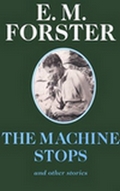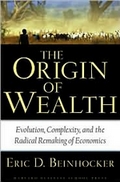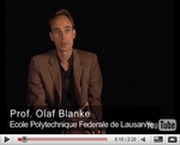Media Literacy: Making Sense Of New Technologies And Media by George Siemens - July 26 08
"Just as literacy is a skill that equips one to understand and communicate through language, media literacy is a skill that equips students to understand and communicate through media."

Photo credit: RGBSpace
"Media literacy (classes) provide students with skills, tools, insights, and a vocabulary to understand the important role the media play in shaping, reflecting, and sometimes subverting our social realities."
(Naomi Rockler- Gladen)
"Two seemingly contradictory trends are shaping the current media landscape: on the one hand, new media technologies have lowered production and distribution costs, expanded the range of available delivery channels, and enabled consumers to archive, annotate, appropriate, and re-circulate media content.At the same time, there has been an alarming concentration of the ownership of mainstream commercial media, with a small handful of multinational media conglomerates dominating all sectors of the entertainment industry.
No one seems capable of describing both sets of changes at the same time, let alone show how they impact each other.
Some fear that media is out of control, others that it is too controlled. Some see a world without gatekeepers, others a world where gatekeepers have unprecedented power.
"
(Henry Jenkins)
Like every week, George Siemens, is your expert guide on the latest trends, changes and announcements transforming the world of media but with an eye that doesn't pay too much attention to the financial backing or to the possible IPO but focuses exclusively on the relevance and impact that these changes will have on our ability to learn and change this world in the direction we want.
eLearning Resources and News
learning, networks, knowledge, technology, trends
by George Siemens
History And The Future

I suspect most readers will be astonished by this statement: it appears that educational technology has a past, a history! It didn't come into existence in 2000 with the rise of blogs, wikis, and such.
futurelab - in History and the future - takes a look at various resources that address the history of educational technology.
The posts notes, with some irony, that even the exploration of technology is somewhat bounded to the last 40 years. Perhaps there is limited value in exploring the development of writing, paper, and other means to convey information. But those topics are still worth considering. There is value in seeing the past...as stated in Harvard's new core curriculum (.pdf):
"General education teaches students to understand themselves as products of--and participants in--traditions of art, ideas, and values."...or "Students should be exposed to other cultures and other periods so that they can better define and comprehend their own experiences in the modern world."
SocialLearn

The recording of Martin Weller's presentation today on SocialLearn: learning about new ways of learning is now available. Martin addressed a range of issues that educators/trainers need to consider about the structure of teaching/learning in disaggregated environments.
SocialLearn is, as one participant noted, one of the first models of education that recognizes and responds to the significant trends of the last half century.
Knol
![]()
With up to 30% of Google/Yahoo searches returning links to Wikipedia, Google sees an enormous non-adsensed space. The traffic of Wikipedia makes ad providers salivate. To combat this untapped market, Google opted to create a service called Knol, where articles can be written by experts (sometimes).
Anyone can create a knol and invite others to contribute. If several people decide to write a knol on elearning, both are allowed to exist. The community can vote and rate article quality. Authors of knols can also add Google's AdSense service to the site and make money in the process. It will be interesting to see how this unfolds.
Google is essentially stating that individual ownership of articles is important. How will knols be listed in Google searches? Will they receive better search returns than Wikipedia articles? A part of me would like to dislike this service (how much more of our soul must we give up to Google?). But the idea is well conceived. The service seems to function well, without the hideous editing text of mediawiki. Feedback loops are in place through comments and ratings.
The opportunity for economic gain will likely also draw some participants. All those factors combine to suggest Knol has a real chance for success. Currently, the resources on the site are quite scarce, however.
Why The Google Generation Isn't As Smart As It Thinks

Statements like this cause me some despair about how ideas that may have a remote scientific basis get projected into hype-speak in main stream media: why the Google generation isn't as smart as it thinks:
"...chronic, long-term distraction is as dangerous as cigarette smoking....They might have stress-related diseases, even irreversible brain damage."
It is rather obvious that information abundance and multitasking are contributing to our collective anxiety. We start jonesing after only a few minutes of broken contact with email, mobile phone, or internet (ok, you might not, but I do). Weak, often shallow social, connections don't result in deep understanding. At least not in themselves.
I'm not satisfied, however, with the tone of this article. What is the solution? Stop the information flow? No new software? Hardware? Um, ok, that won't happen. The road we are on does not yet suggest suitable off ramps.
The primary options left are about adapting ourselves or our tools. Realistically, do people expect that the solution to the problem is as simple as focusing more and becoming less distracted? It's a good article of complaint. And it's easy to complain. Suggesting solutions and future directions is where the hard thinking occurs.
The Machine Stops

Hard to believe this was written in 1909 (E. M. Forster) - The Machine Stops:
"the civilization that had mistaken the functions of the system, and had used it for bringing people to things, instead of for bringing things to people.Those funny old days, when men went for change of air instead of changing the air in their rooms!...
"Cannot you see, cannot all you lecturers see, that it is we that are dying, and that down here the only thing that really lives in the Machine? We created the Machine, to do our will, but we cannot make it do our will now.""It was robbed us of the sense of space and of the sense of touch, it has blurred every human relation and narrowed down love to a carnal act, it has paralysed our bodies and our wills, and now it compels us to worship it. The Machine develops - but not on our lies. The Machine proceeds - but not to our goal.
Narrowing of Science and Scholarship

Connectedness enables us to make sense of the world. Concepts that exist in isolation lack the opportunity to be shaped and formed through connections and interactions. But, as Beinhocker notes in Origin of Wealth, excessive connectivity has equally debilitating results.
Narrowing of Science and Scholarship also sees the openness and ease of connectivity as a weakness:
"following hyperlinks quickly puts researchers in touch with prevailing opinion, but this may accelerate consensus and narrow the range of findings and ideas built upon."
As Cicero opined, people who know only their own generation remain forever as children. It is critical that we acknowledge the concepts of balance and diversity in our own sources of information. We don't want to be too connected - that leads to paralysis. And we don't want to be too narrowly connected - that leads to myopic understandings.
Plastic Minds

Our minds are readily deceived. A classic experiment - the rubber hand (short video here) - demonstrates how quickly we integrate perceptual data.
A mild stretch: I think this provides an interesting talking point on technology can be easily integrated (perceptually at least) into how we function. I mean, if we can be "fooled" into thinking a rubber hand is actually our own, it's quite likely increased use of technology to augment our cognition/perception can be quite easily adopted by our minds.
Memphis: Presentation Slides

This morning, I delivered a presentation to the Desire2Learn Fusion 2008 conference: Connectives and Collectives: learning alone, together. Stephen Downes provides a summary of the talk (thanks!)
Originally written by George Siemens and published as weekly email digest on eLearning Resources and News. First published on July 17th 2008.

To learn more about George Siemens and to access extensive information and resources on elearning check out www.elearnspace.org. Explore also George Siemens connectivism site for resources on the changing nature of learning and check out his new book "Knowing Knowledge".
George Siemens -Reference: eLearnSpace [ Read more ]

blog comments powered by Disqus